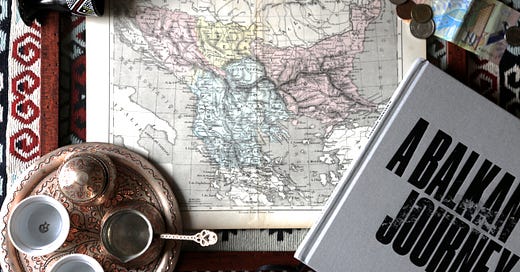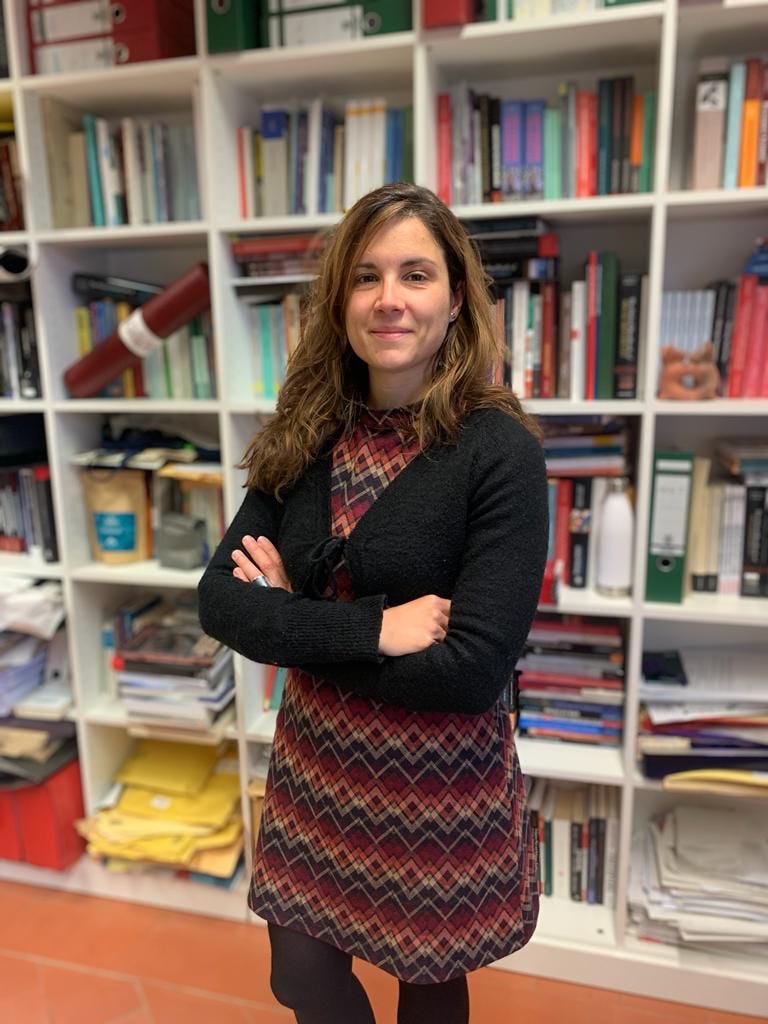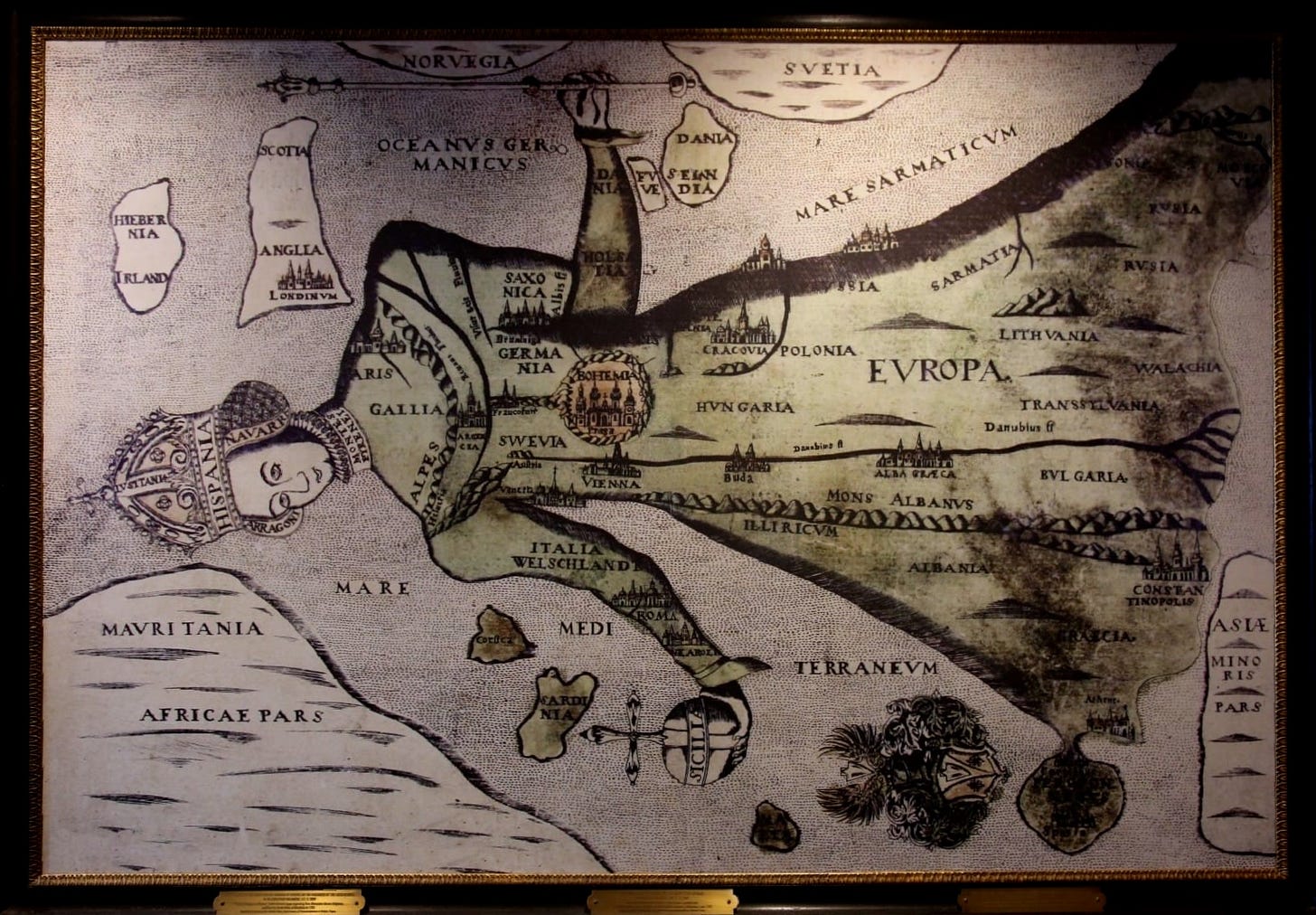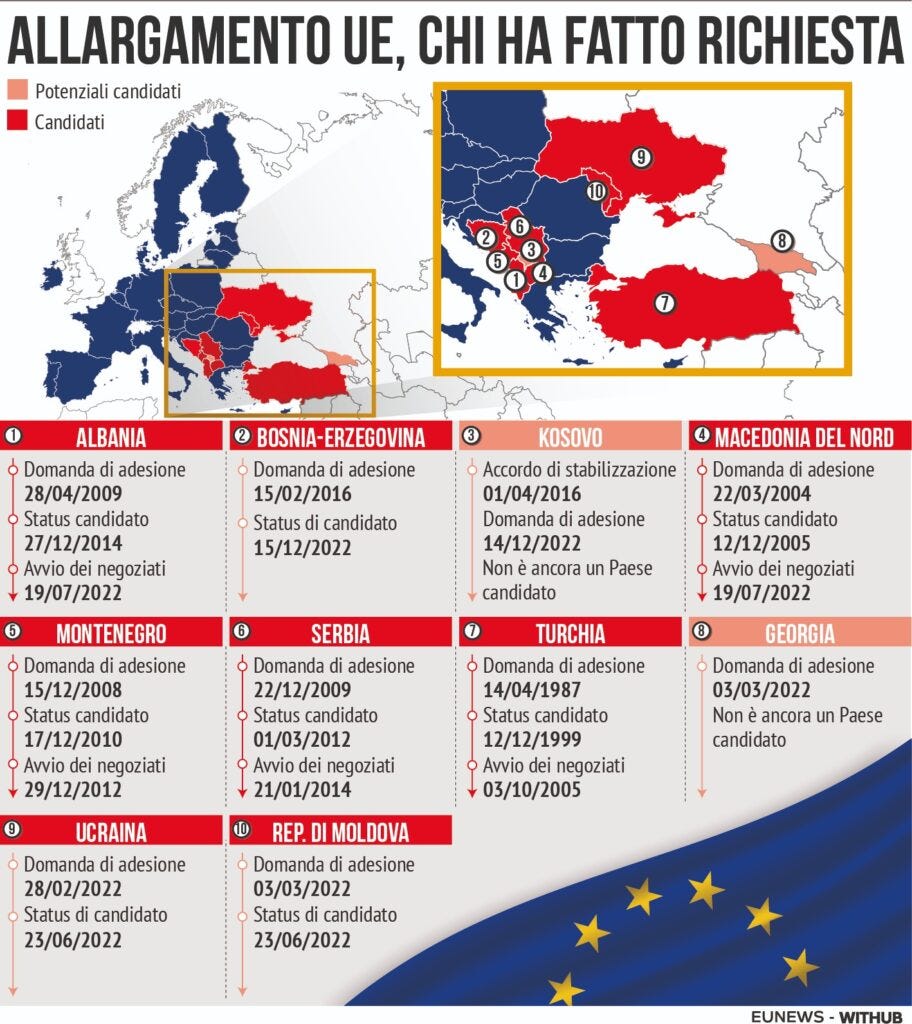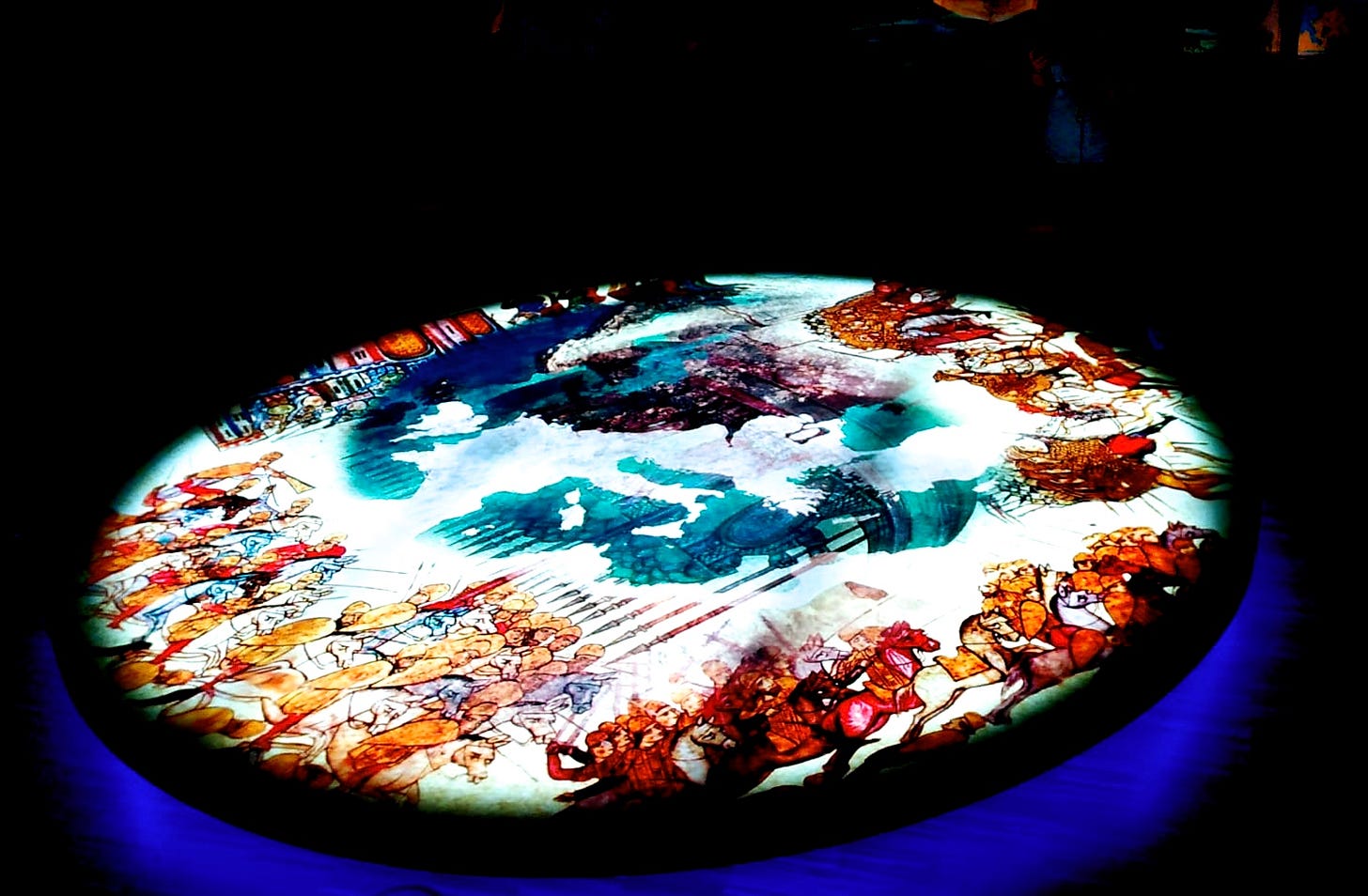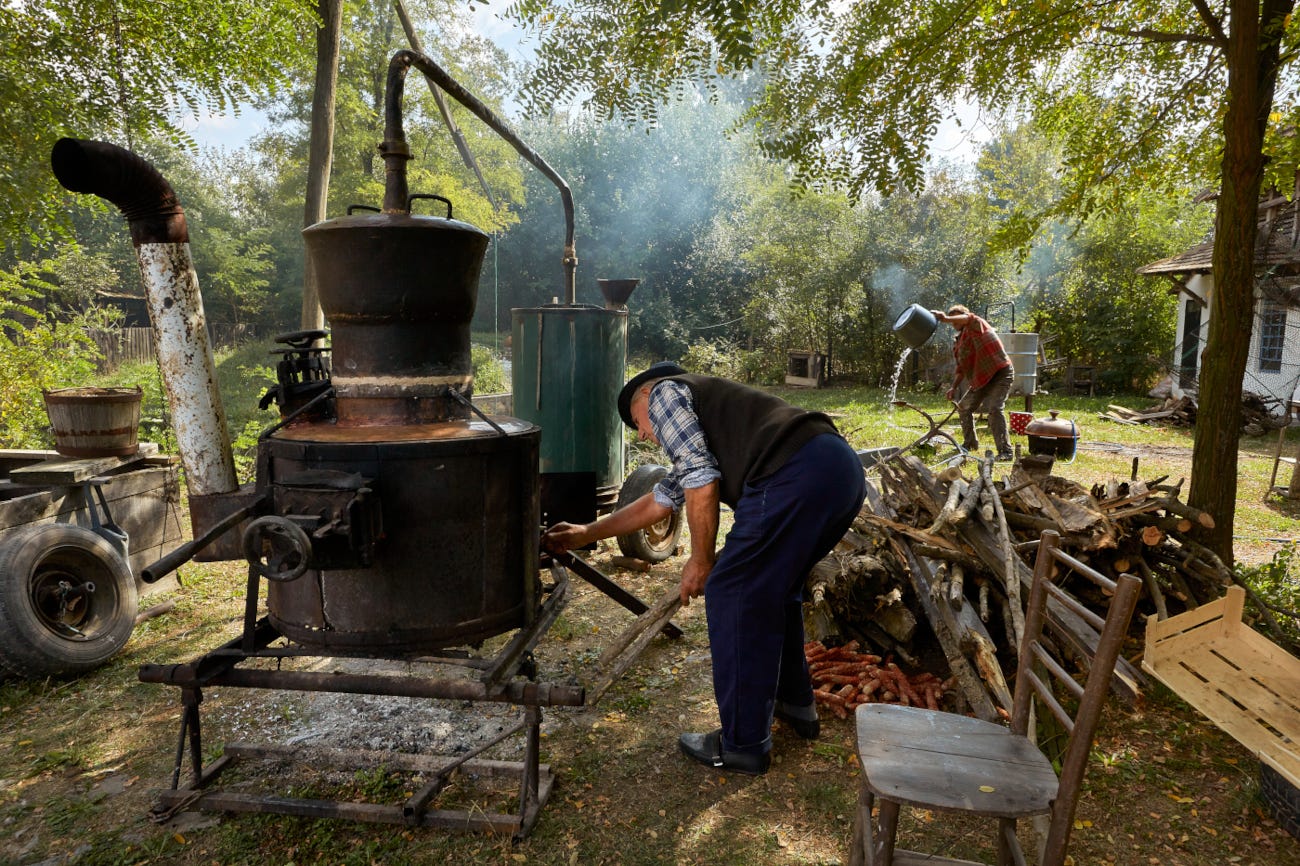S3E19. What you have to know about the word 'Balkans'
The name of the Balkan Peninsula is linked to mountains, and to a historical error. The origin and the development of this word can go deeper, as social scientist Chiara Milan explains in an interview
Hi,
welcome back to BarBalkans, the newsletter (and website) with blurred boundaries.
There are existential questions that inevitably require us to find an answer.
BarBalkans has already tried to do it a few months ago, wondering what Balkan music is and where this obsession comes from (by the way, a huge surprise is coming...).
Almost after three years of this newsletter, today we take a step further.
Why are Balkans called Balkans?
The most obvious answer is “because the region is named after the Balkan Mountains”. And this is a mistake, as we will discover.
But let’s go further. Because the answer is far more articulated and directly concerns all as European citizens. In particular, considering the perception of a region that is often marginalized and excluded from the rest of the continent.
This is why we have to answer this simple question - why are Balkans called Balkans? - in a broader way, asking for the support of a professional who knows the Balkan reality in depth.
Chiara Milan, social scientist at the Scuola Normale Superiore (Pisa) and coordinator of the Jean Monnet ‘Network Transnational Political Contention in Europe’, will guide us through the search of the word ‘Balkans’ deep meaning.
Balkan as ‘mountain’
«Our peninsula was named Europe before Europe itself was named Europe. We are named Balkans because of a German guy who made a major mistake. He was touring our peninsula and had a Turkish translator. He was asking “What is this? What is this?” and the Turkish translator said “Balkan, Balkan, Balkan”, because balkan in Turkish means “mountain”. So, he decided that our region was called Balkan. And now there is this new thing ‘Western Balkans’, invented probably to bring us a little bit on this side [closer to Europe, ndr] than Turkey».
The Prime Minister of Albania, Edi Rama, told this picturesque story of the word ‘Balkan’ origin in a formal setting. It was January 20 in Davos (Switzerland) at the World Economic Forum.
Is the Albanian premier right?
«Considering the Balkans, we have to start with the geographical concept», social scientist Milan explains. «The term balkan has a Turkish origin, that means precisely ‘mountain’».
First coined by German geographer August Zeune in the early 19th century, this word «indicated the mountain range between Serbia and Bulgaria, and only then it was extended to identify the entire peninsula».
In other words, it was a mistake, considering that the mountain range that crosses the peninsula from northwest (Slovenia) to southeast (Greece) is the Dinaric Alps, not the Balkan Mountains. However, historically the term ‘Balkans’ identified «the European part of the Ottoman Empire» and its use prevailed.
After more than two centuries, «with Western Balkans we refer to the former Yugoslav countries, in addition to Albania, and sometimes by extension also to Bulgaria, Romania and Greece».
If there is geographical issue - concerning historical and cultural heritage - where do the Balkans begin?
All the contradictions and identity complexities linked to this meaningful term have been formulated by Slovenian philosopher and political scientist Slavoj Žižek in The Spectre of Balkans:
«For Serbs, it begins down there in Kosovo or Bosnia, and they defend the Christian civilization against this Europe’s Other. For Croats, it begins with the Orthodox, despotic, Byzantine Serbia, against which Croatia defends the values of democratic Western civilization. For Slovenes, it begins with Croatia, and we Slovenes are the last outpost of the peaceful Mitteleuropa. For Italians and Austrians, it begins with Slovenia, where the reign of the Slavic hordes starts. For Germans, Austria itself, on account of its historic connections, is already tainted by the Balkanic corruption and inefficiency».
But the the stereotype concerning ‘Balkan’ goes even further:
«For some arrogant Frenchmen, Germany is associated with the Balkanian Eastern savagery. Up to the extreme case of some conservative anti-European-Union Englishmen for whom, in an implicit way, it is ultimately the whole of continental Europe itself that functions as a kind of Balkan Turkish global empire with Brussels as the new Constantinople, the capricious despotic center threatening English freedom and sovereignty. So Balkan is always the Other: it lies somewhere else, always a little bit more to the southeast, with the paradox that, when we reach the very bottom of the Balkan peninsula, we again magically escape Balkan. Greece is no longer Balkan proper, but the cradle of our Western civilization».
As social scientist Milan confirms, «the negative meaning of the term ‘Balkans’ comes from the instability that has characterized the region at different historical stages», from the Ottoman Empire to the Austro-Hungarian Empire, up to the events of the 20th century.
For example, ‘Balkanization’ is a derogatory way of referring to the «division based on ethnicity». But also expressions like ‘Balkan powder keg’, to identify «an area allegedly characterized by underdevelopment and animosity».
This is especially the case of Central and Western Europe countries, which «struggle to understand, embrace and enhance the distinctive cultural, social, political and religious features of this area».
Read also: S3E9. The legend of fraternal Spomeniks
This is a sort of «Eurocentric vision» shifted to the west. And it has originated a «negative perception, made of nationalism and backwardness, about a region that instead could provide very interesting insights».
According to Milan, Bosnia and Herzegovina is a clear proof: «Religious pluralism, tolerance and inter-ethnic coexistence is a model that has worked for years, even if we tend to consider only the war, the radicalization and how these differences have been manipulated».
The socialist experience of Tito’s Yugoslavia could also have some excellent implications for analysis, as demonstrated by «local activists who are reassessing self-management and mechanisms of democracy that were lost in the post-war period».
From Balkans to Western Balkans
To understand the complexity of the relationship between the Balkans and the rest of Europe - in particular the Western part - it is worthwhile to visit one of the museums that should best represent the features of the entire continent.
We are talking about the House of European History in Brussels, whose aim is to promote the many forms of European integration over the centuries.
Although the criticism on the approach has been maybe too harsh, there is no doubt that the permanent exhibition shows a narrative of the European history very much focused on the Western European countries’ vision.
In other words, the founders of the European Union and the current most important Members States. While a little space has been granted to the countries that European Union itself has called Western Balkans: Albania, Bosnia and Herzegovina, Kosovo, Montenegro, North Macedonia and Serbia.
«Rhetorically speaking, it is easy to create confusion between the terms European Union and Europe», Milan comments, with a reference well known here at BarBalkans: «I want to cite a great pacifist like Alexander Langer. In 1995 he called for EU intervention in Bosnia, saying “Europe will either die or be reborn in Sarajevo” and pointing out that he was talking about the heart of Europe».
Read also: The Langer-Sassoli Project
Twenty years later, social scientist Milan followed the 2014 protests in Bosnia: «They brought forward social and economic demands, caused a European context of economic crisis which affected us all».
In short, «the Western Balkans are at the center of Europe, even if Langer’s demands were not heard».
Meanwhile, the European project and its priorities have also changed. «At the center of the debate now we have migration and border security, this is why the Western Balkans have become interesting again for the European Union».
While in the Nineties there was «enthusiasm for Europe as a political and social process», nowadays the European Union seems to be more interested in the «geopolitical issue of counterbalancing the influence of China, Russia and Turkey».
In short, a «separation is emerging between the project of the Europe of peoples, in which diversity can be included and enhanced, and the European Union looking for border protection».
All this also emerged from the researches by Transnational Political Contention in Europe (TraPoCo) in collaboration with Osservatorio Balcani Caucaso, on the mobilization of Italian citizenship in the Nineties in support of former Yugoslavia’s peoples, and of volunteers who went to the same places in 2020 to support refugees arriving there.
«In the Nineties those people expressed confidence toward the European project, while nowadays there is skepticism and almost disaffection towards the European Union that does not intervene to welcome refugees», the project coordinator reports. «Only the European Parliament still seems to be trusted, not any other institution».
Back to Brussels, the main criticisms to the House of European History concern the overlook for characterizing elements of some regions such as the Balkans (the legacy of the Ottoman Empire and the cultural and social heritage of Islam). More space has been granted to other elements, more familiar to countries that take possession of the term ‘Europe’ to impose their own cultural model.
For example, this is case of the controversial “Christian roots of Europe”.
«I think that too often religion is considered more than the state of democracy», Milan points out: «We have to remember that the Western Balkans countries also have Christian traditions. Just like in the rest of Europe there are many new Europeans with a Muslim background, and this does not make them less European».
At the same time, «concerning the state of democracy, there is a tendency to turn a blind eye to the so-called stabilocrats», such as the President of Serbia, Aleksandar Vučić. Authorities in Brussels relies on these politicians «because they promise reforms and a commitment to join the European Union, but internally they rule through cronyism and corruption and do not guarantee real freedom of expression».
Read also: Breaking news from Tirana
The hope for those who consider Europeanism as an element of unity among peoples connected by a common history, geography and collective consciousness - from the Balkans to Scandinavia - is that all these differences and discriminations will be overcome with the enlargement of the European Union to the entire Balkan region.
«We need to be careful with the rhetoric of the European Union as the ultimate goal and solution to all problems», social scientist Milan warns. «The prospects for enlargement and integration are not crystal clear and there is some skepticism among Balkan citizens, because they do not feel included».
Although in some areas, such as LGBTQIA+ people’s rights, «the European Union has taken some steps forward, taking a stand as a guarantor of their rights».
And it is not possible to hide the hope that «a new Europe will be built by young people, who will be an integral part of this project and will see all its benefits».
The distinction between the Western Balkans and the European Union will disappear, but ‘Europe’ will remain a specific concept. A pure ideal of democratic, civil and human values to which peoples and States can aspire and identify.
Read also: S3E2. Marching for pride
The end of the interview with Chiara Milan reveals another surprise, an unexpected reference to something that will come soon for the readers of this newsletter (we are almost there, someone may have already figured it out...).
«When I talk about the Balkans and stereotypes, I always recommend listening to Dubioza kolektiv. They are an example of self-irony about ‘Balkanization’, that Bosnians in particular suffer, and the album Wild Wild East is brilliant», she confesses with enthusiasm. «We often consider only political representatives, but if we look at the cultural and musical sphere, we can discover so much about this region».
Her conclusion says it all and guides us to BarBalkans’ next stop: «We should listen more to Dubioza kolektiv, and talk less to the rulers!»
Pit stop. Sittin’ at the BarBalkans
We have reached the end of this piece of road.
Even at our bar, the BarBalkans, it is time for existential questions. Why is rakija - the most traditional and popular Balkan alcoholic beverage - called rakija?
The name rakija comes from the Turkish word rakı, which means ‘brandy’. The name of the drink produced from fermented and distilled fruits may have been adopted during the time of the Ottoman Empire, that had a significant influence in the region where rakija is traditionally produced and consumed.
However, there is also another possibility related to the Ottoman times. Rakija could come the Arabic word raqiya, which means ‘to condense’. A reference to the distillation process borrowed from one of the official languages of an Empire that stretched from the Persian Gulf to the Adriatic Sea.
The earliest records of rakija distillation in the Balkan Peninsula date back to the medieval period, while the drink became even more widespread during the Ottoman Empire.
Although the consumption of alcohol is prohibited by Islamic law and the Ottoman Empire did regulate the production and sale of rakija, its consumption was always allowed for pragmatic reasons.
First of all, maintaining social order among only partly Islamized Slavic peoples. But mostly because the production and sale of rakija were a constant source of tax revenue.
This is how the word rakija has become and still represents a symbol of national identities, from North Macedonia to Slovenia.
Let’s continue the BarBalkans journey. We will meet again in two weeks, for the 20th stop.. but I recommend you to pay attention to your email next Saturday.
A big hug and have a good journey!
Your support is essential to realize all that you have read. And even more.
Because a job well done - always aiming to improve - needs many hours and energy, also to keep BarBalkans newsletter free for everyone.
An independent project like this cannot survive without the support of the readers. For this reason I kindly ask you to consider the possibility of donating:
Every second Wednesday of the month you will receive a monthly article-podcast on the Yugoslav Wars, to find out what was happening in the Balkans - right in that month - 30 years ago.
You can listen to the preview of BarBalkans - Podcast on Spreaker and Spotify.
Pay attention! The first time you will receive the newsletter, it may go to spam, or to “Promotions Tab”, if you use Gmail. Just move it to “Inbox” and, on the top of the e-mail, flag the specific option to receive the next ones there.

